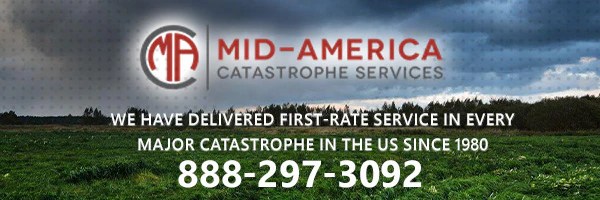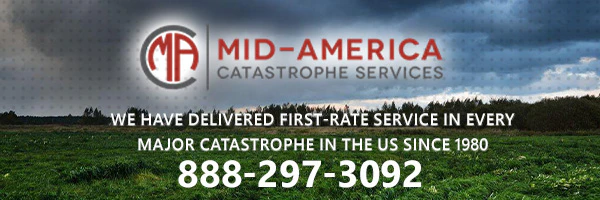
The Challenges of Claim Adjustments in Shared Economy Insurances
Friday, March 29th, 2024 Claims Pages Staff Deciphering Complex Coverage Scenarios in Modern InsuranceThe shared economy, with its innovative use of technology to facilitate the exchange of goods and services among individuals, has transformed traditional business models across multiple sectors. This transformation extends to the insurance industry, which faces novel challenges as it attempts to navigate the complexities of insuring shared assets and services, from cars and homes to tools and even pets. The rapid growth of platforms like Uber, Airbnb, and others has prompted a reevaluation of insurance models that were primarily designed for straightforward owner-to-user transactions.
In the shared economy, ownership and usage are fluid concepts, leading to unique challenges for insurers, particularly when it comes to claim adjustments. This fluidity requires dynamic policy frameworks that can address the nuances of temporary ownership and shared responsibility. The question of who is liable when a borrowed car is involved in an accident, or how damages are handled when multiple parties are involved in a single property rental, are just the tip of the iceberg.
Understanding Liability in Shared Economy Platforms
Liability in the shared economy is often a complex puzzle. With multiple stakeholders involved, determining who is responsible for damages or losses can become convoluted. Traditional insurance policies are typically black and white, covering the named insured for specific risks outlined in the policy. However, in a shared economy scenario, the lines are blurred. Is the platform responsible, the asset owner, the user, or a combination of these? For example, in the case of a ride-sharing accident, factors such as who was driving, the condition of the vehicle, and whether the ride was being operated under the platform’s business can all influence the claim.
Insurance companies are increasingly collaborating with shared economy platforms to develop hybrid policies that cater to these unique scenarios. These policies often include layers of coverage that activate depending on the situation. For instance, ride-sharing companies provide contingent coverage that kicks in only when a driver is logged into the app and actively transporting a customer. This layered approach helps manage risks more effectively but also adds complexity to the claims process.
The Role of Technology in Managing Shared Economy Claims
Technology plays a pivotal role in managing and adjusting claims within the shared economy. Innovative use of data collection and real-time monitoring through apps and connected devices provides insurers with the tools to assess risks and address claims more accurately. For instance, GPS data can verify the location and usage of a vehicle during an accident, which is crucial in determining the validity of a claim under a ride-sharing policy.
Moreover, technology enables more efficient communication and documentation, which are vital in handling claims involving multiple parties. Digital platforms allow for the seamless exchange of information between the insurer, the asset owner, and the renter. This not only speeds up the claims process but also ensures transparency and accuracy in the recording of events and damages.
Despite these technological advances, the human element remains crucial. Insurance adjusters need to be skilled not only in navigating complex policy landscapes but also in managing relationships with all parties involved. The adjuster’s role involves a delicate balance of investigative rigor and empathy, particularly when claimants are dealing with the stress of an accident or damage to a borrowed or rented asset.
The challenges of claim adjustments in the shared economy require insurers to be nimble and innovative. As this industry continues to grow and evolve, insurance products and claims handling procedures must adapt to meet the changing landscape. This involves not only rethinking traditional insurance models but also embracing new technologies and collaborative approaches to policy design and claim resolution.
As the shared economy continues to expand its footprint across more sectors, the insurance industry must adapt not only its products but also its mindset. The traditional approach to claims, which often involves lengthy processes and fixed policies, does not mesh well with the fast-paced, flexible demands of shared economy users and providers. This calls for an innovative approach to policy design and claims management that can accommodate the variability and spontaneity inherent in shared services.
Challenges of Rapid Scaling and Variable Usage
One of the significant challenges facing insurers in the shared economy is the rapid scaling of operations and the variability in asset usage. Assets like cars, homes, or even personal equipment can switch between personal and commercial use several times a day, complicating the risk assessment and policy pricing. Insurers must develop flexible, scalable models that can adapt to the fast-changing dynamics of shared asset utilization.
For example, a car used in a ride-sharing service may serve personal purposes in the morning and transform into a commercial vehicle in the afternoon. Insurance policies must reflect this dual usage, providing coverage that adapts in real-time based on the vehicle’s status. This requires sophisticated tracking and data analytics capabilities, which can monitor usage patterns and adjust coverage and premiums accordingly.
Integrating User Feedback and Data into Claims Adjustments
Another key element in modernizing claims adjustment in the shared economy is the integration of user feedback and data. Shared economy platforms typically have robust user review systems that can provide valuable insights into the behavior of renters and service providers. This data can be crucial in assessing risk and liability in the event of a claim. For example, a consistent pattern of poor reviews or reports of reckless behavior on a ride-sharing platform could influence the assessment of fault and liability in accident claims.
Furthermore, leveraging big data and machine learning can help insurers process claims more efficiently and accurately. By analyzing large datasets from various interactions and transactions on shared economy platforms, insurers can identify trends and red flags that may indicate elevated risks or potential fraud. This proactive approach not only speeds up the claims process but also helps in accurately pricing the insurance products to reflect the true risk.
Promoting Transparency and Trust through Smart Contracts
Blockchain technology and smart contracts present another promising avenue for improving claims management in the shared economy. These technologies can automate many aspects of the insurance process, from policy agreement to claims adjustment, ensuring that all conditions are met before any payouts are made. Smart contracts can automatically verify claim data against the policy terms, making the claims process faster and less prone to errors or fraud.
For instance, a smart contract could automatically trigger a payment when specific conditions agreed upon in the policy are confirmed by data inputs, such as the time-stamped GPS data from a ride-sharing car involved in an accident. This level of automation not only reduces administrative costs but also enhances transparency, building trust among all parties involved in the shared economy.
The adoption of these advanced technologies and innovative strategies represents a significant shift in how insurance claims are managed in the shared economy. By embracing flexibility, leveraging data, and employing cutting-edge technology, insurers can address the unique challenges of this rapidly evolving market. These adaptations not only streamline the claims process but also ensure that the insurance products are fair, transparent, and tailored to the needs of a modern, mobile society.
The landscape of the shared economy poses a dynamic challenge to traditional insurance practices, but it also offers an opportunity for the industry to innovate and evolve. The flexibility required to insure temporary and varied use of assets demands a departure from conventional models to more agile, responsive insurance solutions. As we continue to navigate this new frontier, it is clear that adaptability and innovation are key to managing the complexities of shared economy insurance claims.
Building Comprehensive Risk Management Strategies
To effectively manage the risks associated with the shared economy, insurers must build comprehensive risk management strategies that account for the fluid nature of asset usage. This involves not only crafting bespoke insurance products but also implementing risk mitigation techniques that can reduce the frequency and severity of claims. For example, offering incentives for safe usage practices or integrating safety features into the insured assets can significantly decrease risk exposures.
Moreover, collaboration between insurance companies and shared economy platforms is crucial. By working closely with these platforms, insurers can gain better insights into the operational dynamics and develop insurance products that are truly aligned with the needs and expectations of both asset providers and users. This collaboration can also facilitate the seamless integration of insurance into the user experience, making it a natural part of the shared economy rather than an external, cumbersome addition.
Embracing Regulatory Changes and Customer Education
As with any rapidly evolving industry, the shared economy is often ahead of existing regulations, leading to gaps that can complicate insurance claims. Proactively engaging with regulators to shape policies that reflect the current realities and future possibilities of shared asset usage will be essential for ensuring that the insurance products are both effective and compliant.
Additionally, educating customers about the specifics of shared economy insurance is vital. Many users and providers in the shared economy are not fully aware of the insurance coverage available or the importance of adhering to the terms of their policies. Transparent communication and education efforts can demystify insurance processes and enhance compliance, ultimately reducing disputes and claims issues.
Conclusion: Navigating the New Insurance Frontier
In conclusion, the shared economy represents a significant shift in how people use and share assets, necessitating an equally significant shift in how these activities are insured. The challenges of claim adjustments in this sector are manifold, but they also propel the insurance industry towards greater innovation and responsiveness. By adopting flexible policies, integrating advanced technologies, and fostering strong partnerships with shared economy platforms, insurers can effectively address the unique demands of this growing sector.
The journey through the new insurance frontiers of the shared economy is complex, but it is also ripe with opportunities for those willing to adapt and innovate. Through collaboration, technological integration, and proactive risk management, insurers can not only overcome the challenges but also lead the way in developing insurance solutions that are robust, fair, and aligned with the future of economic sharing.
Enhance your understanding of complex insurance coverages with our detailed series on "Deciphering Complex Coverage Scenarios in Modern Insurance." Each article within the series offers a focused look at the challenges and strategies involved in modern insurance claims. From navigating policy ambiguities to adapting to new risks such as cyber threats and climate change, our series comprehensively addresses the pivotal elements of modern insurance management. Elevate your professional capabilities and stay informed on the latest trends and practices in the ever-evolving landscape of insurance, ensuring your readiness to handle complex claims with precision and insight.

